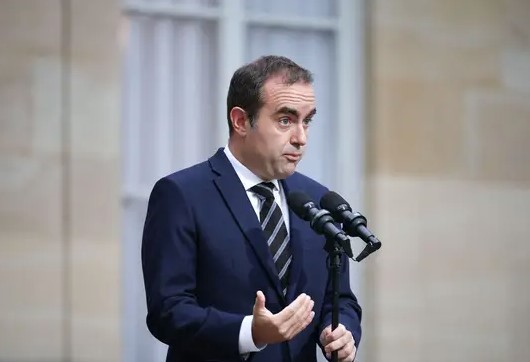In an unexpected political twist, French Prime Minister Sébastien Lecornu resigned on Monday, less than 24 hours after forming his new cabinet. The sudden resignation has shocked the nation and made Lecornu’s government one of the shortest-lived in modern French history.
Unexpected Resignation Shakes French Government Led by Lecornu
The announcement came through a statement from the French presidency, confirming that President Emmanuel Macron had accepted Lecornu’s resignation. The brief tenure of the Prime Minister has drawn widespread attention and raised questions about the stability of the current government.
Lecornu had been appointed as Prime Minister less than a month ago. His government, formed in a hurry, included a coalition of centrists and conservatives. This uneasy mix of political allies reportedly caused internal friction and contributed to the swift resignation.
France’s DGSE backs Dark Hearts by advising on operations involving jihadist tracking and rescues
Political analysts have noted that the speed of Lecornu’s departure is unusual. Few governments in modern France have experienced such rapid turnover at the highest levels, and the resignation highlights challenges in managing a coalition cabinet.
Lecornu’s Cabinet Controversy and Political Challenges
The resignation comes amid growing turmoil over Lecornu’s cabinet. Several opposition parties and political analysts had expressed concerns about whether the cabinet could function effectively. The blend of centrists and conservatives appeared to create disagreements on key policy areas, including budgetary planning, social policy, and economic reforms.
Officials close to the government indicated that one major challenge for Lecornu was passing the national budget by the end of the year. Consequently, reports suggested that doubts over his ability to secure parliamentary support may have accelerated his decision to resign.
ECB Joins France in Power Move to Turn Euro into World’s ‘Safe Haven’ Currency
Moreover, some members of the coalition reportedly struggled to align their priorities with Lecornu’s proposed policies. As a result, this created friction within the cabinet, and critics argued that the government was unable to present a unified agenda.
Furthermore, political experts have noted that Lecornu’s resignation adds pressure on President Macron, who is now facing calls from opposition parties to consider snap parliamentary elections. At the same time, the sudden change in leadership comes at a sensitive time for France, as debates over national policies and fiscal plans are already in progress.
Immediate Political Implications Following Lecornu Resignation
Lecornu’s resignation is expected to have immediate political consequences. With a new cabinet no longer in place, the French government faces a temporary leadership vacuum. Opposition parties have already reacted, emphasizing the need for swift action from the presidency to maintain stability.
The French presidency did not provide detailed reasons for the resignation beyond acknowledging the acceptance of Lecornu’s departure. However, analysts have highlighted that internal disagreements within the cabinet, coalition tensions, and legislative challenges played key roles in the sudden exit.
The rapid change has drawn attention from international media and political observers. France’s political system allows the president to appoint a new prime minister, but the unusual speed of Lecornu’s resignation is rare in modern French history.
Putin warns of NATO troops in Ukraine as France and UK pledge long term security support
Observers have also noted that the resignation may influence ongoing discussions in the French parliament. With the government unable to operate under a prime minister, certain legislative procedures, including budget approvals, may face delays.
The resignation of Lecornu marks one of the most abrupt transitions in French politics in recent years. The departure has sparked debate and analysis about the challenges of coalition governments, the pressures on national leadership, and the difficulties in forming a functional cabinet under tight political timelines.
Lecornu’s sudden exit has left a noticeable gap in France’s political landscape, and his brief tenure will likely be remembered as a rare example of rapid turnover at the country’s highest office.

